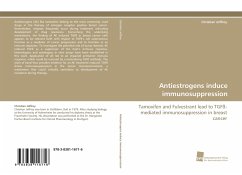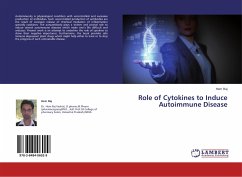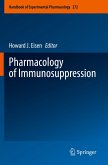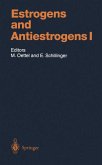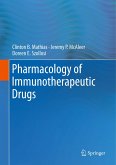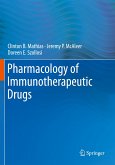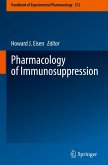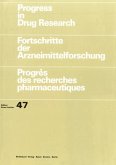Antiestrogens (AE) like tamoxifen belong to the most commonly used drugs in the therapy of estrogen receptor positive breast cancer. Nevertheless, relapses frequently occur during treatment indicating development of drug resistance. Concerning the underlying mechanisms, the finding of AE induced TGFß in breast cancer cells appears to be relevant both with respect to TGFß's cell autonomous function as a mediator of cancer progression and its function as an immune regulator. To investigate the potential role of tumor derived, AE induced TGFß as a suppressor of the host's immune response, heterologous and autologous in vitro assays have been established in this work. Application of AE led to an impaired antitumor immune response, which could be restored by a neutralizing TGFß antibody. The work at hand thus provides evidence for an AE treatment induced, TGFß driven immunosuppression in the tumor microenvironment, a mechanism that could critically contribute to development of AE resistance during therapy.
Bitte wählen Sie Ihr Anliegen aus.
Rechnungen
Retourenschein anfordern
Bestellstatus
Storno

